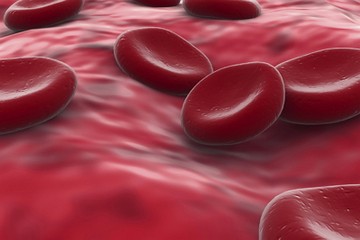Blood Clotting During Pregnancy

Contents:
- Blood Clotting in Pregnancy: Norm and Deviation
- Blood Coagulation and Normal Values in Pregnancy
- Increased Blood Clotting in Pregnancy: Norm and Deviation
- Decreased Blood Clotting in Pregnancy: Norm and Deviation
Blood Clotting in Pregnancy: Norm and Deviation
The expectant mother has to pass many tests. These tests include the blood coagulation assessment in pregnancy. It is an important factor influencing the healthy pregnancy and the safe labor. Let’s see what is blood clotting and why pregnant women need to pass coagulation tests.
Blood Coagulation and Normal Values in Pregnancy
The blood performs many functions in the human body including transportation, protection, thermoregulation. It circulates in vessels. If the integrity of their walls is damaged, the blood forms a clot (thrombus) that closes the damaged area and thus stops bleeding. This property of blood is called coagulation.
Blood coagulation in the body is regulated by both the hemostasis (blood clotting system) and the anticoagulation system. Violation of any of these systems leads to pathological conditions such as blood clots (increased blood coagulation) or inversely increased bleeding (decreased blood coagulation).
Normally, blood clotting in pregnancy tend to increase. Starting from the second trimester of pregnancy the activity of coagulation factors increase, while anti-coagulation factors become less active. This is provided by the nature to stop the bleeding in the area of placental separation after the labor, as this zone features an intensive blood supply. Otherwise, the mother may die within few minutes from a large blood loss.
Several factors influence the normal coagulation in pregnancy:
- PTT or partial thromboplastin time-the time required for blood clotting, norm is 17-20 seconds.
- Fibrinogen-a special protein that is necessary for the formation of a blood clot, the norm is up to 6.5 g/l.
- Lupus anticoagulant-specific antibodies that normally should not be present in the blood.
- Platelets are blood cells that are produced in the bone marrow, norm is 131-402 thousands/mcl.
- Prothrombin- the blood plasma protein involved in the formation of a clot, its norm – 78-142%.
- TT or Thrombin time-the time that takes thrombin to converse fibrinogen to fibrin, the norm is 18-25 seconds.
- D-Dimer is responsible for the process of thrombosis, the norm is 33-726 ng/ml.
- Antithrombin III- is a protein, retarding blood clotting, its norm – 70-115%.
Only a doctor can explain the results of the coagulation tests. Many of the factors change throughout the nine months of gestation, that’s why only a specialist can assess them in the right way. Both reduced and increased coagulation in pregnancy is fraught with many dangerous consequences. Therefore, women should pass coagulation tests several times during the pregnancy.
Increased Blood Clotting in Pregnancy: Norm and Deviation

If the indicators of blood coagulation in the pregnant woman are above the norm, this can cause some complications. The thing is that the placenta, supplying the fetus with necessary nutrients, features a big number of blood vessels. In case of increased coagulation they may form clots preventing the baby from receiving all the necessary substances. This may affect its development and increase the risk of congenital defects. This condition can result in miscarriage, late toxemia in the severe form and placental insufficiency.
Moreover, this condition threatens the woman’s health with the occurrence of clots both during childbearing and postpartum period. Even at the slightest increase in the coagulation factors, doctors recommend the expectant mother to stick to a special diet and drinking regime. You should drink at least 1.5-2 litres of fluids per day. You’d better opt for green or herbal tea, natural fruit and vegetable juices, pure still water.
The diet contributing to the normalization of coagulation should include a balanced content of proteins, fats, carbohydrates and vitamins. The mom-to-be should eat seeweed, nuts, raw olive and flaxseed oil. You need to cut meat and increase the amount of marine fish you eat. Among the healthy products are bell pepper, onion and garlic, wheat germs. In case of a significant increase in blood coagulation, your doctor will select blood thinning medications called anticoagulants.
Decreased Blood Clotting in Pregnancy: Norm and Deviation
Decreased coagulation in the pregnant women is explained by the bad immunity that is necessary for preventing the mom’s body from rejecting the fetus.
A significant decrease in blood coagulation may develop many pathological conditions such as miscarriage, premature birth, placental abruption in late terms, bleeding during the labor. This condition may also contribute to the development of blood clotting disorders in the baby.
Reduced blood coagulation in pregnancy requires treatment prescribed by the doctor. This condition is treated with the help of specially designed for this purpose drugs. Moreover, the mom-to-be with such a problem should limit her liquids intake, avoid spicy foods, alcohol and smoking.